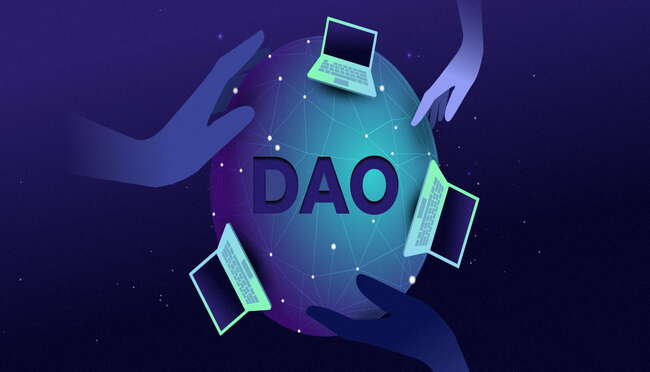Highlights:
- U.S. court has ruled that DAOs are general partnerships and hence will expose members to liability under state law.
- Lido DAO lawsuit highlights risks of decentralized governance and unregistered token securities.
- TRON partners with Nansen to enhance blockchain scalability and improve dApp user engagement.
A United States federal court has determined that decentralized autonomous organizations (DAOs) qualify as general partnerships. Judge Vince Chhabria ruled on November 18 in California. As a result, the ruling means members of DAOs may face liability under state partnership laws. This decision targets DAOs that generate revenue and operate through token holders’ votes.
DAO PARTICIPATION NOW RISKIER: LIDO CASE SETS PRECEDENT
Lido DAO’s legal shield crumbled: California ruled it a general partnership, exposing members to liability.
The structure didn’t hold: even passive involvement like forum activity can be risky; a16z, Paradigm, and… pic.twitter.com/YqZ5sPmFP8
— Crypto Town Hall (@Crypto_TownHall) November 19, 2024
The case concerned Lido DAO, a leading liquid staking solution. An investor named Andrew Samuels sued LidoDAO for losses he incurred when buying Lido tokens. Specifically, he stated that the tokens offered and sold were unregistered securities thus infringing the laws of the United States of America. In so doing, the court determined that Lido DAO operates as a general partnership under California law.
The court also found that DAO governance participation creates liability. Therefore, the decision will affect both token holders and participants who are actively involved in the operation. This has big implications for the way DAOs are structured and operated.
Lido DAO Faces Liability Case
The lawsuit stems from Samuels’ losses after buying Lido DAO tokens. He alleged that Lido failed to register the tokens with regulators. This failure, he claimed, violated the Securities Act. He held the DAO and its identifiable partners responsible for his losses.
The lawsuit named four investors, including Andreessen Horowitz and Paradigm Operations. However, the court dismissed claims against one investor, Robot Ventures. The judge found that Robot Ventures did not actively participate in Lido DAO governance. However, other investors were implicated in their alleged involvement as general partners.
The court made clear that decentralization cannot save DAOs from liability. The majority ruling clarified that for a DAO to qualify as a general partnership, it must have active participants and be profit-driven.
Governance Challenges and Crypto Reaction
The court ruling has ignited a broad discussion on DAOs. The ruling is seen by many as going against the very nature of DAOs. General Counsel Miles Jennings at Andreessen Horowitz expressed his frustration publicly. Even minimal participation now could expose individuals to liability, he warned. Members could face legal risks by posting in DAO forums or voting on governance.
Today, a California judge dealt a huge blow to decentralized governance.
Under the ruling, any DAO participation (even posting in a forum) could be sufficient to hold DAO members liable for the actions of other members under general partnership laws.
It's time to DUNA. pic.twitter.com/aKNBY7pfc9
— miles jennings (@milesjennings) November 19, 2024
The court’s ruling highlights the need for DAOs to reconsider their legal frameworks. Without clear legal protections, participants may face increased scrutiny and potential lawsuits. Legal experts suggest DAOs may need to adopt formal structures to protect members. This shift could challenge the foundation of decentralized governance models.
Crypto leaders fear this decision will deter innovation. However, others view this as a wake-up call to improve regulatory compliance. This ruling highlights the need to define plain responsibilities in the DAOs.
TRON DAO Teams with Nansen
In related news, Nansen has partnered with TRON DAO. The purpose behind this collaboration is to enhance the TRON blockchain ecosystem. Nansen will provide data insights to improve dApps’ decision-making. Developers will use these insights to build better user interfaces for dApps.
We are thrilled to announce our collaboration with @trondao , a leading ecosystem, to deliver industry-leading onchain analytics of the TRON network.
This integration aims to equip users with the data they need to succeed.
Learn more: https://t.co/pelswi61Rg
— Nansen 🧭 (@nansen_ai) November 19, 2024
Nansen’s analytics will be integrated into TRON’s virtual machine. With this system, transactions become faster, and smart contract execution is better. These upgrades are expected to help make the platform more efficient. This could also help TRON’s ecosystem to get more users and developers.





